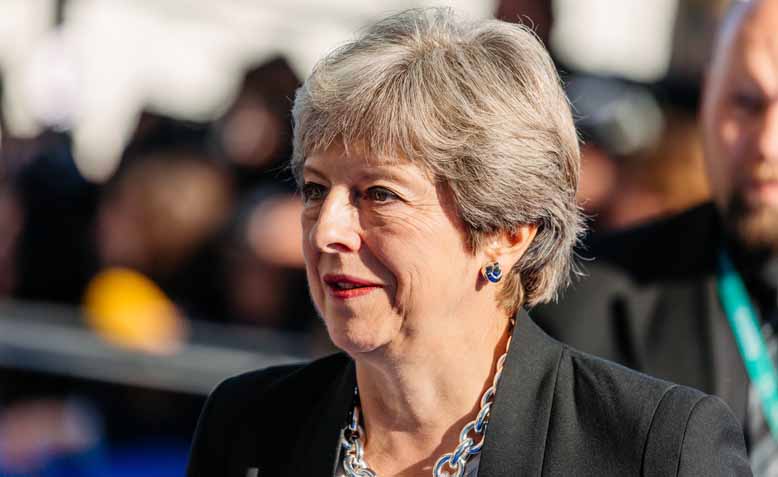 Theresa May at Tallin Digital Summit, 2017. Photo: Wikipedia
Theresa May at Tallin Digital Summit, 2017. Photo: Wikipedia
Theresa May has attempted to trump Jeremy Corbyn’s Brexit speech but she still has no credibility
On Friday afternoon Theresa May tried to bounce back from criticism of her Brexit strategy with a speech in London, setting forward the tenets of their approach to any deal with the EU. While her speech centred on uniting the country, it is clear its immediate aim was uniting her party.
The Tories have been submerged in a bitter war between Remainers and Brexiters, on the backbenches and in the cabinet. These battles have blighted the beleaguered May, who has thus far failed to reconcile these opposing sides and present a cohesive Brexit plan. It is hard to see that this speech marking the beginning of such.
May attempted to keep the likes of Boris Johnson in check by talking of pragmatism and common sense and not making dogmatic decisions. This tone was almost certainly an effort to persuade the party’s Remainer backbenchers not to join forces with Labour to defeat the government in parliament. It remains to be seen how successful the speech will be in doing so. Instinct suggests it won’t be.
Besides pledging to leave the single market, the Tory government have been very vague in their vision for Brexit. This speech was meant to change all that. Has it? Of course not. On the question of the Irish border, May confirmed that she would not accept a hard Irish border before suggesting a customs partnership or a streamlined customs border. Neither suggestion will take the Irish border off the Brexit debate table for now.
On the subject of markets and a trade deal with the EU, May was at pains to assert that the UK would accept binding commitments on increasing competition and restricting subsidies. In plain English, this means the government wants to ensure it keeps legislation restricting nationalisation efforts and state intervention. This is no surprise. In the EU or out, this is the Tories we’re talking about. This also highlights how much different a Labour people’s Brexit could be- ensuring nationalization and state intervention are firmly on the table for the government to improve services and build jobs.
As part of her speech, Theresa May set out five tests for any Brexit deal. The first being that the deal must respect the referendum result, the second that the deal must not break down, third that it must protect jobs and security, fourth that it ‘must be consistent with the type of the country we want to be’ and finally that any deal must bring the deal together. This is not just a vague but entirely laughable. The idea that this Tory government is concerned with protecting jobs ridiculous. The one thing that unites both remain and Brexit Tories is their affiliation with big business and their disregard for ordinary people and their jobs. The collapse of Carillion typified this. I’m surprised May’s fifth test didn’t get more laughter from the audience watching. Leading such a disunited party, this test will be failed before it even leaves the cabinet.
The talk before the speech from journalists was that this was May’s opportunity to reawaken the Prime Minister of her early premiership, where she used her first speech to promise equality for people of all backgrounds. After such a disastrous period in office, in which she lost her majority and continued austerity, hurting so many, even a return to such promises would be fruitless.
This is yet again more vagueness from a Prime Minister wrestling with both wings of her party. If Labour is to take advantage of this, it must be bold in its vision of a People’s Brexit and expose May’s difficulties. Brexit has rumbled on. It will rumble on.

